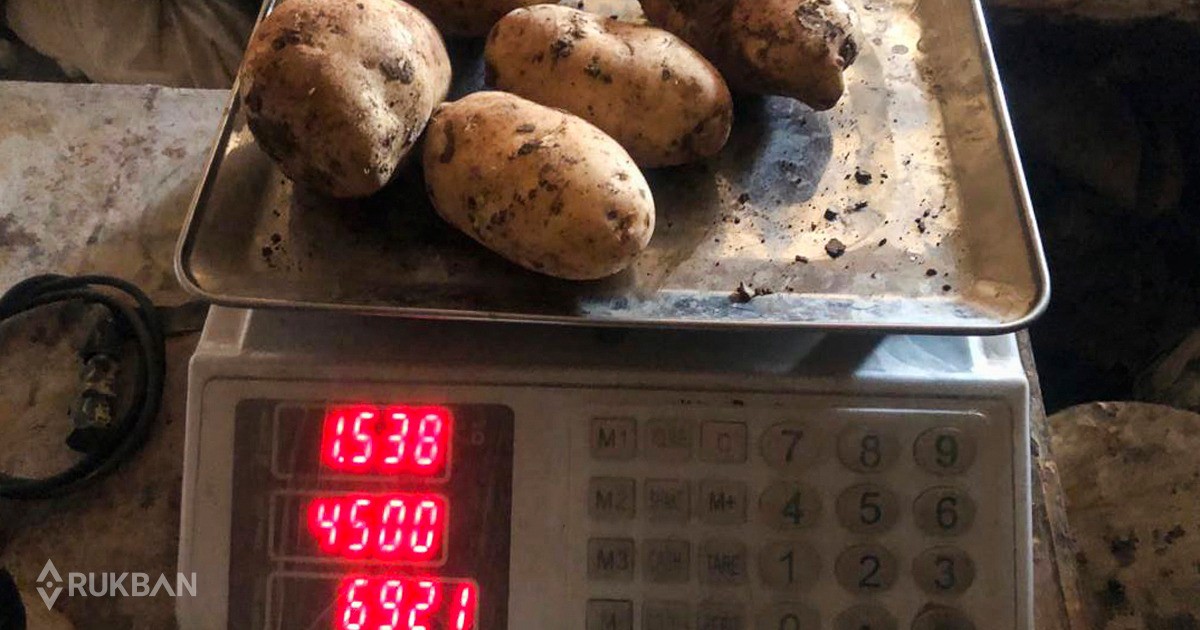Abu Omar, a displaced person from the eastern countryside of Homs, spends a long time in the Rukban camp market, thinking and doing arithmetic operations in his mind that would enable him to bring breakfast at the lowest cost, and in proportion to the money he carries.
Despite what Abu Omar is doing, his attempts often fail. “This is the case of many.” He tells us that the average need of a family like his family of five, at the minimum, according to his expression, is not commensurate with the average per capita income of less than ten thousand pounds per day. As well as the high cost of food and supplies with the advent of the holy month.
Abu Omar says that making the simplest meal, such as “the mafrika,” without appetizers, salad or fattoush, you need to buy a kilo and a half kilos of potatoes for six thousand pounds, and five eggs for three thousand pounds, as you have to pay nine thousand pounds, except for what you will put in the house of oil Onions, coriander, cumin, and tiger kernels.
The rise in prices, which was reinforced by the continuation of the siege and the control of smugglers, prevented the presence of fatty meals and main dishes at the Rukbanees’ tables. It also created habits that those we spoke with called “walking the course” that the Syrians had not previously become familiar with during their Ramadan.
Abu Omar says that he resorted to canned food to break the daily routine of the dish, and to silence his children who were bored with the repetition of potatoes, meatless meals, chicken and appetizers on their Ramadan table. .
Mariam, a displaced person in the camp, says that her husband has a limited income, which makes her look for less expensive meals, as the salad dish, which was always present on the table previously, which cost her fifteen thousand pounds, was absent, and she replaced it with sheep\’s milk, which has become a partner in most of her dishes, She buys half a kilo a day for four thousand pounds.
Abu Khader, the owner of a vegetable store and a milk seller, talks about a noticeable increase in the quantities of milk sold, especially since it is included in several dishes, and its presence at the table has increased, and it is “the cooker of the stew today, and it helps the children to be full,” according to what one of the parents told Abu Khader, in exchange for In addition, vegetables are sold in small quantities and at high prices, such as tomatoes for five thousand pounds, cucumbers and lettuce at the same price, and eggplants for five thousand and five hundred pounds.
Abu Khader does not call out his voice to attract the attention of passers-by in the Rukban market about his greenery. Most people pay attention to the price, not caring about the quality and appearance. Others are ashamed to send their children. They buy tomatoes and other vegetables “with one and two” after asking about their price and liking them.


